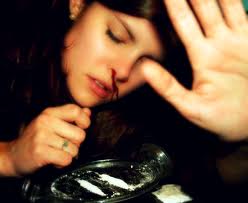Is Cocaine Addictive?
Cocaine is one of the most highly addictive drugs in existence. It increases energy and alertness and produces such an intense euphoria that, once tried, many find hard to resist.
Cocaine Addiction
We’ve all heard about the rat studies where rats are given the choice between food and cocaine and they always choose the cocaine to the extent that they starve themselves to death. The same thing happens to cocaine addicts as they destroy themselves both physically and psychologically. The dependency on cocaine causes them to lose their dignity, their self respect, self control, and their ability to live life with any sense of normalcy. To so many, it becomes a costly, vicious, cycle that leaves the addict in desperation while chasing the next high becomes their priority.
How is Cocaine Abused?
Cocaine normally comes in a white powder which is snorted or diluted for injection. Another form of cocaine which plagues society is crack cocaine which is a form of cocaine that has been “cooked” into a hardened substance and then smoked.
Smoking crack or injecting cocaine opens the door to a wider potential for adverse health risks including poisoning from dangerous chemicals, infections, and diseases from sharing dirty needles and other paraphernalia.
Physical Effects of Cocaine

Cocaine is an addicting drug.
Cocaine is a strong central nervous system (CNS) stimulant that increases dopamine, the neurotransmitter related to pleasure. This increase and accumulation of dopamine is what gives users the intense euphoria they so much crave. Cocaine makes a person hyperactive and increases energy, alertness, and talkativeness while also increasing heart rate and blood pressure which can be dangerous.
The data from the 2011 Drug Abuse Warning Network (DAWN) report on drug related emergency department visits showed that cocaine was involved in 505,224 or 40.3% of the visits involving illicit drugs. It has been linked to a number of serious physical side effects including:
- Dependency and addiction
- Withdrawals
- Cardiovascular problems
- Respiratory problems
- Neurological problems
- Digestive problems
- HIV, AIDs, hepatitis c, and other diseases
- Seizures
- Coma
- Overdose
- Death
Psychological Effects of Cocaine
With repeat usage, the CNS becomes impaired to the point that the person is unable to manage their thoughts, behaviors, or emotions. It will rely on the use of cocaine to balance the lack of normal dopamine production and to induce any feelings of “normalcy.” Cocaine addicts often have co-existing substance abuse problems and/or mental health problems. Long term or chronic use causes psychological impairments such as:
- Anxiety, depression, or bi-polar disorders
- Paranoia psychosis
- Restlessness or irritability
- Insomnia
- Anger or Aggression
- Drastic mood changes
- Irrational behaviors to obtain cocaine
- Auditory hallucinations or tactile hallucinations (“coke bugs”)
